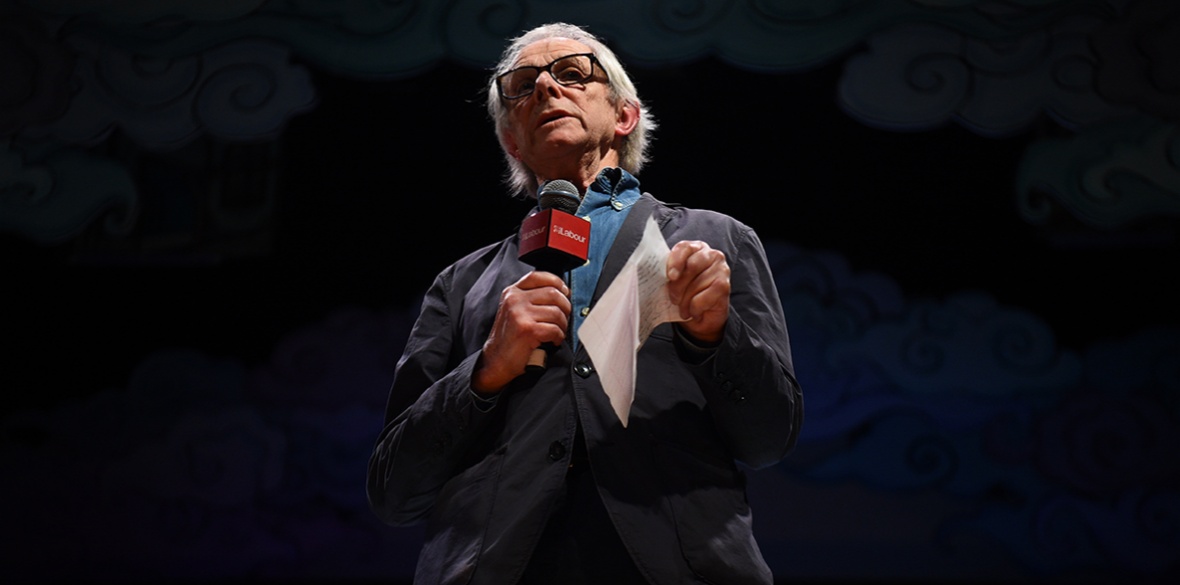LABOUR’S expulsion of film director Ken Loach at the weekend marks a new low for Keir Starmer’s paranoid internal regime.
Loach was in the crosshairs as soon as last month’s national executive meeting decided to auto-exclude (ban without due process) a raft of socialist members of various left groups.
The rightwingers need high-profile scalps and Loach was faced with the option of denouncing those who had already been expelled or being expelled himself.
It is to his credit that he refused to turn on comrades, and quite in character — in 2019 Loach, with former Aslef president Tosh McDonald, were among those who led a shout-out in solidarity with then suspended MP Chris Williamson, an earlier target of the right’s smear machine — from the County Hotel balcony as the Durham Miners’ Gala bands marched past.
There have been few leading Labour socialists who assessed what the Labour right was up to so consistently throughout the Corbyn years.
Ahead of the 2019 election he assessed its domination of the parliamentary party as the biggest obstacle to the socialist transformation Britain needs, not because they are “worse than the Tories,” but because they are responsible for squashing any socialist challenge to the Tories.
It is this challenge to Labour’s self-regarding MPs that perhaps inspired the strangest defence of his expulsion, Mike Gapes’s indignant tweets about a time when Loach (an octogenarian) was allowed a seat on the floor of Labour conference when he himself had been forced to stand on the balcony.
It was his clear-eyed understanding that the right were not interested in compromise and the concessions being made to them were futile abdications of principle that led him to decry Labour’s adoption of the deeply problematic IHRA definition of anti-semitism, a definition few had heard of before Corbynism but which is now being used by ministers to attack expressions of solidarity with Palestine in our universities.
Being expelled for refusing to denounce others who have been expelled is McCarthyism of the worst kind. It reflects the vicious character of the Labour Party machine and an ominous authoritarianism on the part of the leader of the opposition. As one Jewish socialist Labour member quipped over the weekend, it’s “good that Keir Starmer is just leader of the Labour Party and not director of public prosecutions.”
But the expulsion of Loach has a wider resonance as a repudiation of an entire critique of capitalism that motivated the Corbyn surge.
Loach is not merely a distinguished film-maker with a decades-long record of directing outstanding pictures expressing diverse aspects of the working-class experience.
His recent work, as usual in collaboration with writer Paul Laverty, has included perhaps the highest-profile exposés of the reality of Tory “austerity” — the inhuman impact of Conservative “welfare reforms” in I, Daniel Blake; the way the myth of opportunity in the “gig economy” masks a reality of super-exploitation, misery and fear in Sorry We Missed You.
These, together with the optimistic Spirit of ’45 with its message that change is possible, were viewed at labour movement events up and down the country: they were mobilising art, part of the narrative of the new socialist politics from 2015.
The challenge for the left is to halt its dissipation and further the class struggle in the Labour leadership’s despite. Within Labour this does indeed mean resisting, including by applying pressure regionally and through unions.
But it is even more important that socialists whether in Labour or not are active locally: fighting for the pay rise our NHS workers deserve, against fire and rehire, to kill the Police, Crime, Sentencing and Courts Bill. And that we build unity in these struggles regardless of political party.
Loach’s defiant statement that “we are many, they are few” following his expulsion shows he is still part of that movement.










